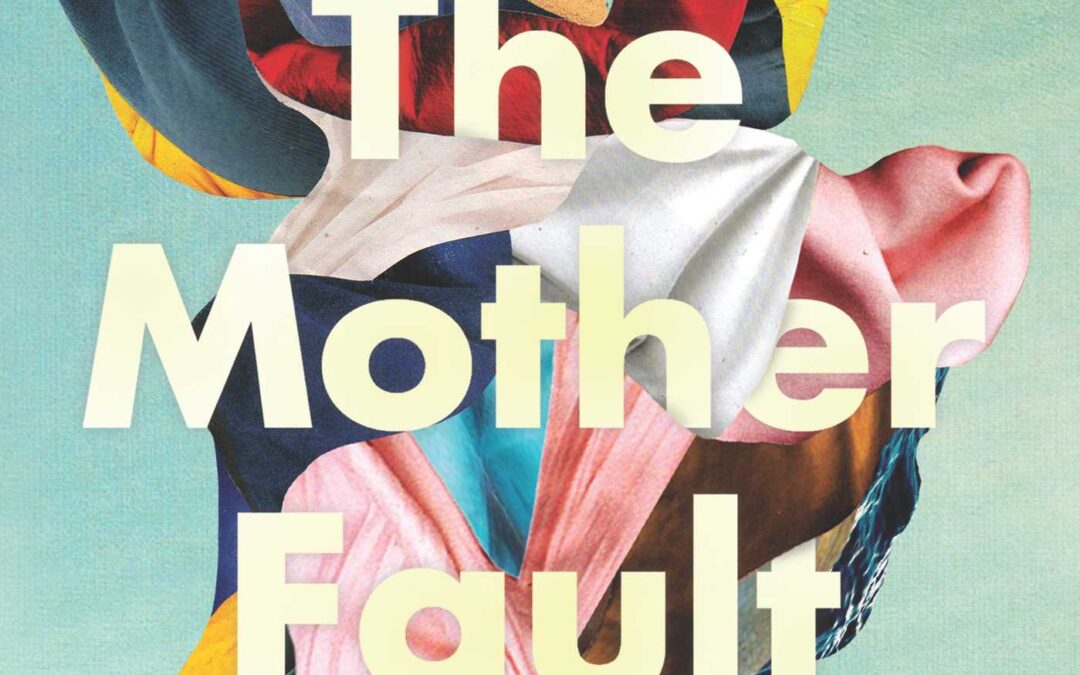I read this book in one breathless, edge-of-my-seat, page-turning session, propelled by the tension, the action, the ever-present sense of danger, the pressing need for this woman to take charge of her fate and wrest back control to save her children. The Mother Fault (Simon and Schuster 2020) by Kate Mildenhall is a heart-racing thriller, a dynamic commentary on the state of the world and a wake-up call as to our response to the political, socio-economic, racial, nationalistic and environmental trauma happening before our eyes.
Like Margaret Atwood’s The Handmaid’s Tale, The Mother Fault is set in the future, but not so far in the future that we cannot recognise the landscape. As with the frog settled so comfortably in the pot of lukewarm water that it doesn’t comprehend danger until the water begins to boil, the characters in this story have been gradually adapting to changes and rules and restrictions that seemed innocuous at the beginning but now begin to reveal the sinister and unsettling truth. And as with Alice Robinson’s The Glad Shout, this is a story with a strong woman at its heart; a wife with a missing husband, a mother determined to do anything to save her children.
When Mim’s husband Ben, a FIFO worker in Indonesia, disappears, she fears for his safety. Especially as The Department (ie the government) has everyone microchipped and should be able to geolocate him instantly. When she realises he can’t be tracked, and that The Department is as keen to find him as she is, Mim becomes increasingly aware of what is at stake. The Department will not hesitate to detain her – and place her children into the notorious BestLife institution – if Ben cannot be found. With her passport confiscated, and the lives of all those closest to her in peril, Mim goes on the run to find Ben, through the Australian outback and then on a terrifying sea voyage that will test every nerve, muscle and sense of strength that she had forgotten she possessed.
There is so much to love about this book. Firstly, it is such a classic thriller, with all the energy and pace of a crime novel. It is almost entirely breathless, from start to finish. Occasionally we are given a reprieve with a flashback to Mim’s earlier life, which not only fleshes out her family circumstances but enables the reader to pause and inhale. But then we are straight back into the action. Secondly, this is a beautifully crafted story written with literary language that sings from the pages. Mildenhall’s depiction of place, and her detailed mastery of the sea journey, informed by her own practical experience, add authenticity and depth to every sentence. It is so rare to find a book that speaks to the beauty of landscape, emotion and language, while managing to maintain such a frenetic pace. And thirdly, this is a novel of issues, a narrative that explores the big, timely themes significant currently: environmentalism, climate refugees, global corporations and greed, consumerism and Big Brother technology. It references our cities sinking into the seas, our earth suffering a series of disasters, our citizens monitored, traced and regulated, our freedoms curtailed. These issues are not front and centre of the novel; rather they are the backdrop to the very human ongoing drama that concerns a mother and her family. Mim’s fears and reactions are instantly recognisable and relatable but it is the changed world in which she must operate that makes her actions so much riskier and challenging. Just like the frog, we are lulled into a false sense of apathy while things are going okay, only to realise how fragile that security is once the water begins to heat up.
Much of this narrative is told in dialogue, and it is sharp and keenly observed. The children’s voices are pitch perfect. Mim’s relationship with her children is rich, warm and precious. Her own musings about her self-doubts about motherhood and what her life has become, and whether she is doing a good job, are thoughtful and poignant. The dynamics between all of the characters are compelling. Even the minor characters are distinguished by their individual voices, each distinct from the other.
The strength of Mim’s character lies in her vulnerability, her uncertainty, her mistakes, her errors of judgement and her lies (to others and to herself). She is imperfect, as are we all. While she is floundering along, attempting to do her best, she makes mistakes and she miscalculates and she takes what are – in hindsight – perhaps unacceptable risks. But this is what makes her whole, and human. This is what endears her to us and makes us want to cheer her on. Even when she stumbles morally or ethically – or perhaps exactly because she messes up in this way – we are on her side, because we know that we might make the same reckless decisions, the same rash choices, the same selfish calls. Mim’s grit, determination and courage propel this story towards a shocking conclusion.

